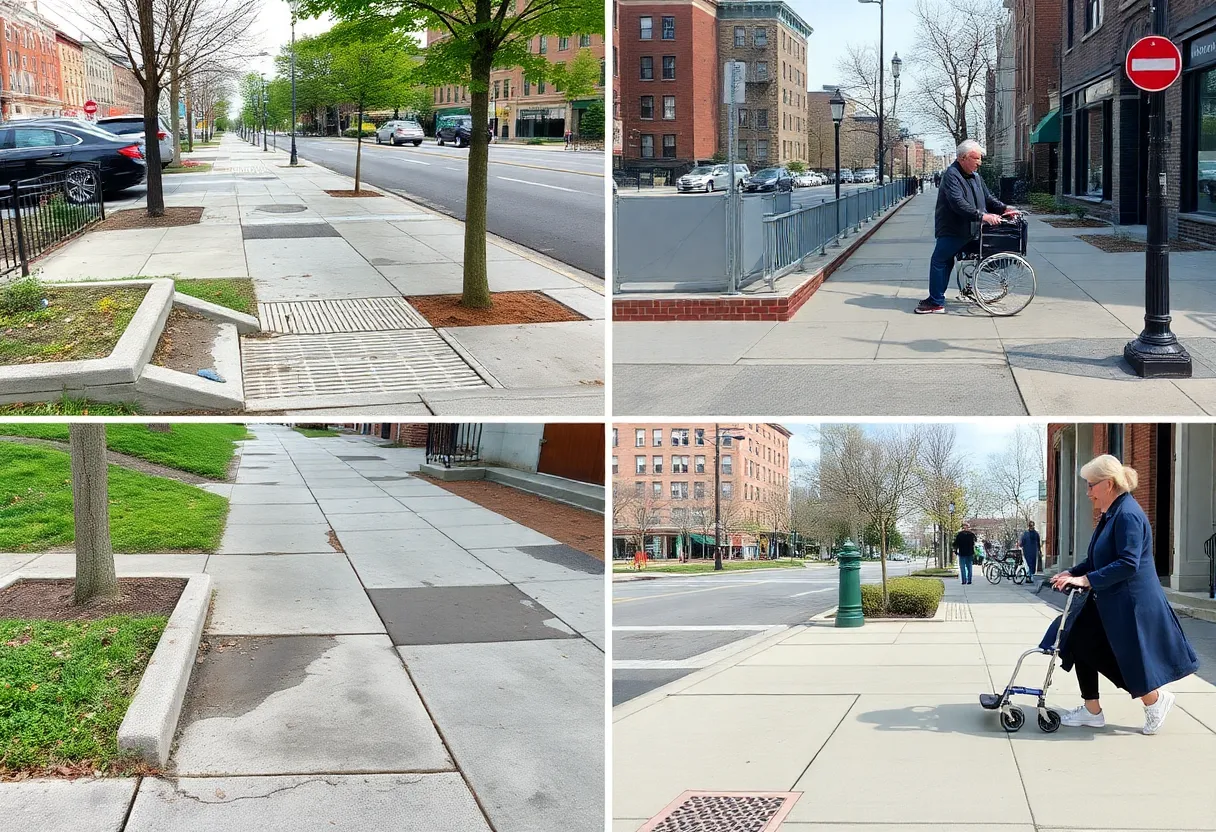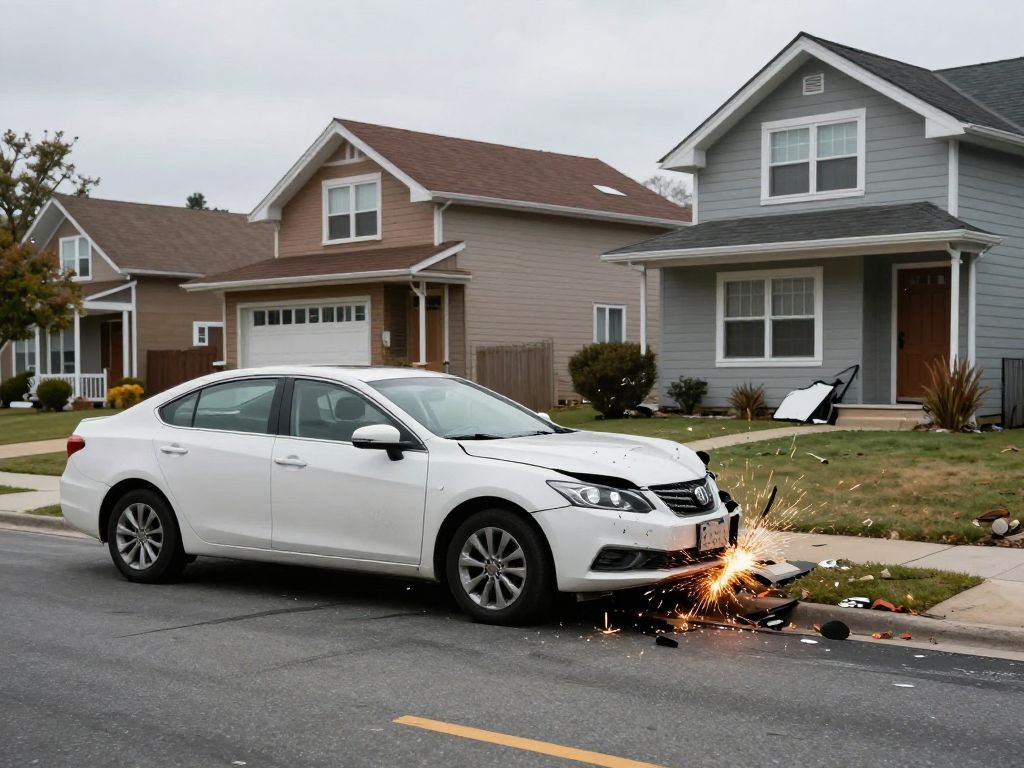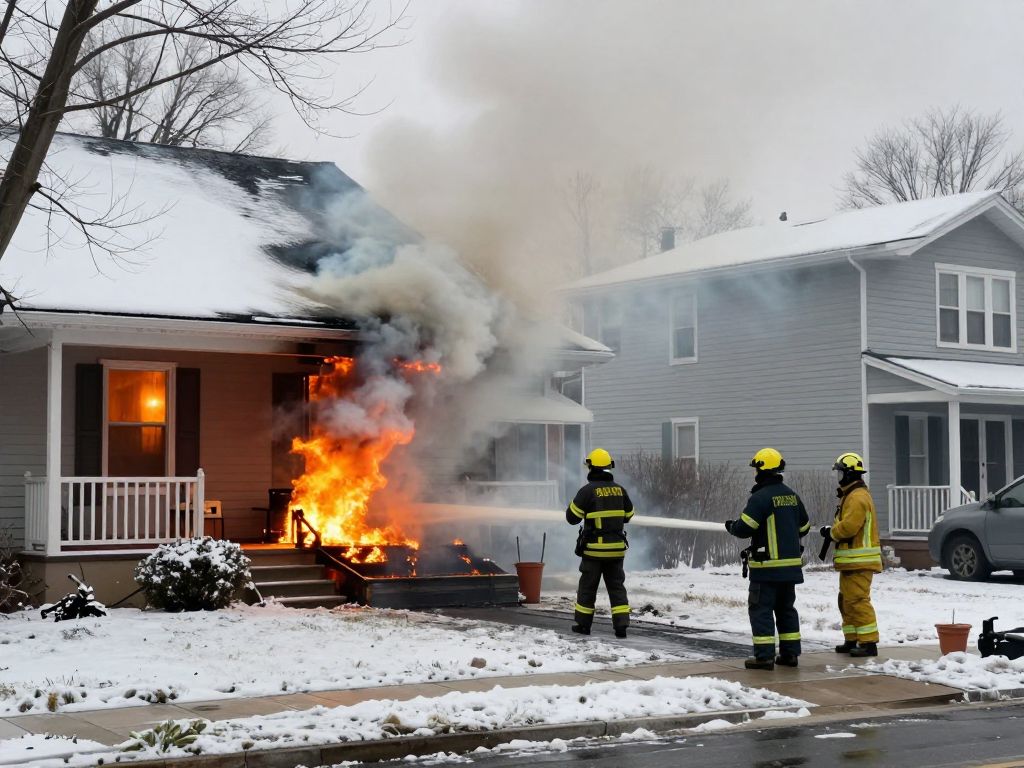News Summary
Despite a legal settlement to improve sidewalk accessibility for individuals with disabilities, Boston is falling short of its commitments. The city aims to repair 1,630 curb ramps annually, but averages only about 1,300. Many reported sidewalk defects remain unresolved, affecting residents using mobility aids. As challenges continue, including staffing shortages and a significant backlog, advocates emphasize the urgent need for better infrastructure to support disabled individuals navigating the city.
Boston – Despite a legal settlement aimed at improving sidewalk accessibility for residents with disabilities, the City of Boston continues to fall short of its objectives, leaving many individuals struggling to navigate the streets. The settlement, reached in 2018 following a lawsuit, mandated the city to repair a minimum of 1,630 curb ramps annually. However, the city has not consistently met this commitment, averaging approximately 1,300 repairs each year since then.
In 2022, Boston managed to repair 1,586 ramps, the closest it has come to fulfilling its obligation. Yet, as of June 2024, more than two-thirds of the roughly 5,700 reported sidewalk defects lodged through the city’s 311 system remained unresolved. These ongoing accessibility issues, including cracks, bumps, missing bricks, and narrow pathways, significantly affect users of mobility aids.
Residents report that the poor condition of sidewalks often forces wheelchair users to travel in the street, substantially increasing their risk of traffic accidents. For those with visual impairments, damaged sidewalks can lead to broken canes and further complications in navigation. The difficulties are compounded for individuals with disabilities, as many navigate the city with the assistance of mobility aids, which are hindered by uneven surfaces.
Boston’s disability commissioner has stated that the city is dedicated to making intersections entirely accessible by 2030. However, staffing shortages and adverse weather conditions during construction seasons have been cited as ongoing obstacles to meeting the city’s repair goals. Since the lawsuit settlement, a consistent average of 1,310 curb cut renovations has been completed each year, with the city reporting 1,321 curb ramps completed in 2024 alone.
The legal settlement arose from advocacy groups claiming that less than half of Boston’s 23,000 curb ramps complied with federal access standards. The city is responsible for maintaining these curb ramps when constructing new sidewalks or resurfacing existing roads, with a focus on improving access near government buildings, schools, and medical facilities.
A significant backlog, estimated to be around $800 million, hampers the city’s efforts to keep sidewalks in good repair. Notably, neighborhoods such as Roxbury and Dorchester show a higher percentage of sidewalks in disrepair compared to affluent areas like Back Bay and downtown. The now-phased-out StreetCaster program, implemented in 2018, aimed to help prioritize sidewalk repairs based on neighborhood needs.
As part of its updated repair strategies, the city is considering using pervious pavers to enhance sidewalks in high-traffic areas and reduce breakage around trees. Repair prioritization is also moving beyond traditional requests, factoring in social vulnerability and pedestrian volume.
Advocates like a deaf-blind disability representative express persistent challenges they face due to inadequate sidewalk maintenance. Other residents share their experiences navigating Boston’s sidewalks, illustrating the systemic difficulties those with mobility impairments encounter daily. The city’s mayor has recognized the necessity for improved sidewalk clearing during winter months while stressing a shared responsibility between city officials and property owners. Over 1,200 citations have been issued to property owners for neglecting to clear their sidewalks after snowfall.
As Boston works towards enhancing climate resilience, sidewalk accessibility remains an integral part of its strategy to face future weather-related challenges. The ongoing efforts to address these issues highlight the city’s recognition of the importance of accessible infrastructure, although progress remains urgently needed to support its residents with disabilities.
Deeper Dive: News & Info About This Topic
HERE Resources
Additional Resources
- Boston Globe: Mobility Access in Boston Sidewalks
- Wikipedia: Sidewalk
- Smart Cities Dive: Baltimore Sidewalk Upgrades for ADA Compliance
- Google Search: Sidewalk Accessibility Boston
- MassLive: Boston Issues Tickets for Icy Sidewalks
- Encyclopedia Britannica: Urban Planning
- WCVB: Downtown Boston Truck Accident
- Google News: Boston Sidewalks

Author: STAFF HERE BOSTON WRITER
The BOSTON STAFF WRITER represents the experienced team at HEREBoston.com, your go-to source for actionable local news and information in Boston, Suffolk County, and beyond. Specializing in "news you can use," we cover essential topics like product reviews for personal and business needs, local business directories, politics, real estate trends, neighborhood insights, and state news affecting the area—with deep expertise drawn from years of dedicated reporting and strong community input, including local press releases and business updates. We deliver top reporting on high-value events such as Boston Marathon, Head of the Charles Regatta, and Boston Harborfest. Our coverage extends to key organizations like the Greater Boston Chamber of Commerce and Associated Industries of Massachusetts, plus leading businesses in finance, biotech, and insurance that power the local economy such as Fidelity Investments, Biogen, and Liberty Mutual Insurance. As part of the broader HERE network, we provide comprehensive, credible insights into Massachusetts's dynamic landscape.





